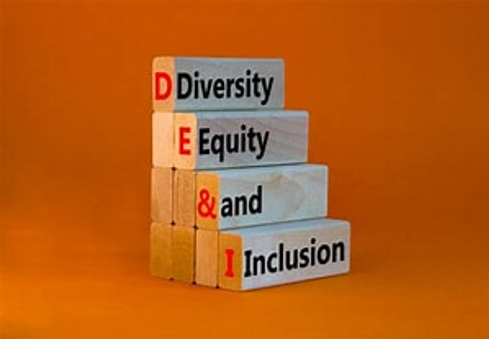
By Christopher Young,
Contributing Writer,

Photo: WGCU.com
In September 2020, The Wall Street Journal said, “Black professionals comprise 1% of the executives running America’s top 500 companies.” That equates to four people. “Among all U.S. companies with 100 or more employees, Black people hold just 3% of executive or senior-level roles,” according to Equal Employment Opportunity Commission data.
Having workplaces that more broadly reflect all of America should be a no-brainer in the land of the free, the home of the brave. Having workplaces that are more inclusive should be a norm, but diversity, equity and inclusion programs and initiatives are necessary because a level playing-field does not exist for all citizens in America – it never has.
Per Afrotech.com, at a time when many CEOs have either gone silent on DEI efforts or have openly criticized the programs, Jamie Dimon, the CEO of JPMorgan Chase, the largest bank in the country, reiterated the bank’s commitment to DEI earlier this year. In a letter to shareholders, he said, “We’re thoughtfully continuing our diversity, equity and inclusion efforts…there is nothing wrong with acknowledging and trying to bridge social and economic gaps, whether they be around wealth or health…we would like to provide a fair chance for everyone to succeed – regardless of their background.” Wow, what a belief to have – providing a fair chance for everyone to succeed.
Dimon, who has had his detractors at times, knows darn well that the playing field isn’t equal, and while at the helm of the largest bank in the country, he’s trying to do something about it. He invests in fairness, participation and opportunity.
On the other end of the pendulum are companies like Google, Meta and Zoom, that are doing the exact opposite. Following the murder of George Floyd, companies like these with big public faces, lauded fairness and equity and were scrambling to make those investments, but now they have backed away.
On July 29, 2024, the folks at Techcrunch.com, a company with a multi-cultural staff, that reports on the business of the technology industry, refers to the current DEI backlash as The Great Rollback. “Lawsuits have been filed targeting DEI programs, forcing companies to now hide their inclusion efforts while billionaires are arguing on X about whether DEI initiatives are discriminatory or not.” Who could claim that placing emphasis on fairness and opportunity is discriminatory? Who could claim that attempts to level grossly unlevel education and business landscapes are discriminatory? You already know – it’s powerful white males, often billionaires.
In July 2023, the New York Times interviewed Edward Jay Blum, a white man who is anti-affirmative action, anti-DEI. “Edward Blum has been working toward the end of race-based admissions in higher education for years. He first brought the issue of affirmative action before the Supreme Court in 2012, with Fisher v. University of Texas – a case he ended up losing. Since then, the 71-year-old legal activist has founded a group called Students for Fair Admissions, which just won at the Supreme Court against Harvard and the University of North Carolina, in a decision that effectively ended race-based affirmative action policies in American college admissions. Now, with a legal victory in hand, Mr. Blum is thinking about what’s next in his work to remove the consideration of race from other parts of American life and law.”
Blum is not an attorney, he likes to think of himself as a matchmaker, pairing specific causes with attorneys willing to represent them. He has been very successful, to the detriment of minorities. These are the cases that he has litigated by proxy at the U.S. Supreme Court: Bush v. Vera (1996), Northwest Austin Municipal Utility District No. 1 v. Holder (2009), Fisher v. University of Texas (2013), Shelby County v. Holder (2013), Evenwel v. Abbott (2016), and Fisher v. University of Texas II (2016).
He holds a fellowship at the American Enterprise Institute – a conservative think-tank in Washington, DC. He authored the book The Unintended Consequences of Section 5 of the Voting Rights Act, in 2007. In the NYT interview he stated that “racial classifications are a zero-sum game.
The interviewer, Lulu Garcia-Navarro, asked “I am wondering if you believe in systemic racism – racism embedded in the institutions of American life. Because if you look at statistics in this country, a typical white family holds 10 times the wealth that a typical Black family does. There are currently only eight Black CEOs of Fortune 500 companies, 20 Latino CEOs. Black people live sicker lives and they die younger than white people. I could go on.” Blum responded, “No, I do not believe in it. What your question implies is that in the American DNA there is racism. It was founded upon racism. It is part of what this country is. I reject that.”
We tend to view matchmakers as positive and productive, yet here we see that there is another side to the occupation. One white man is determined to make the consideration of race go away in our society. He said that he does not believe systemic racism exists in America. Surely it follows that he does not believe he is racist either.

Be the first to comment